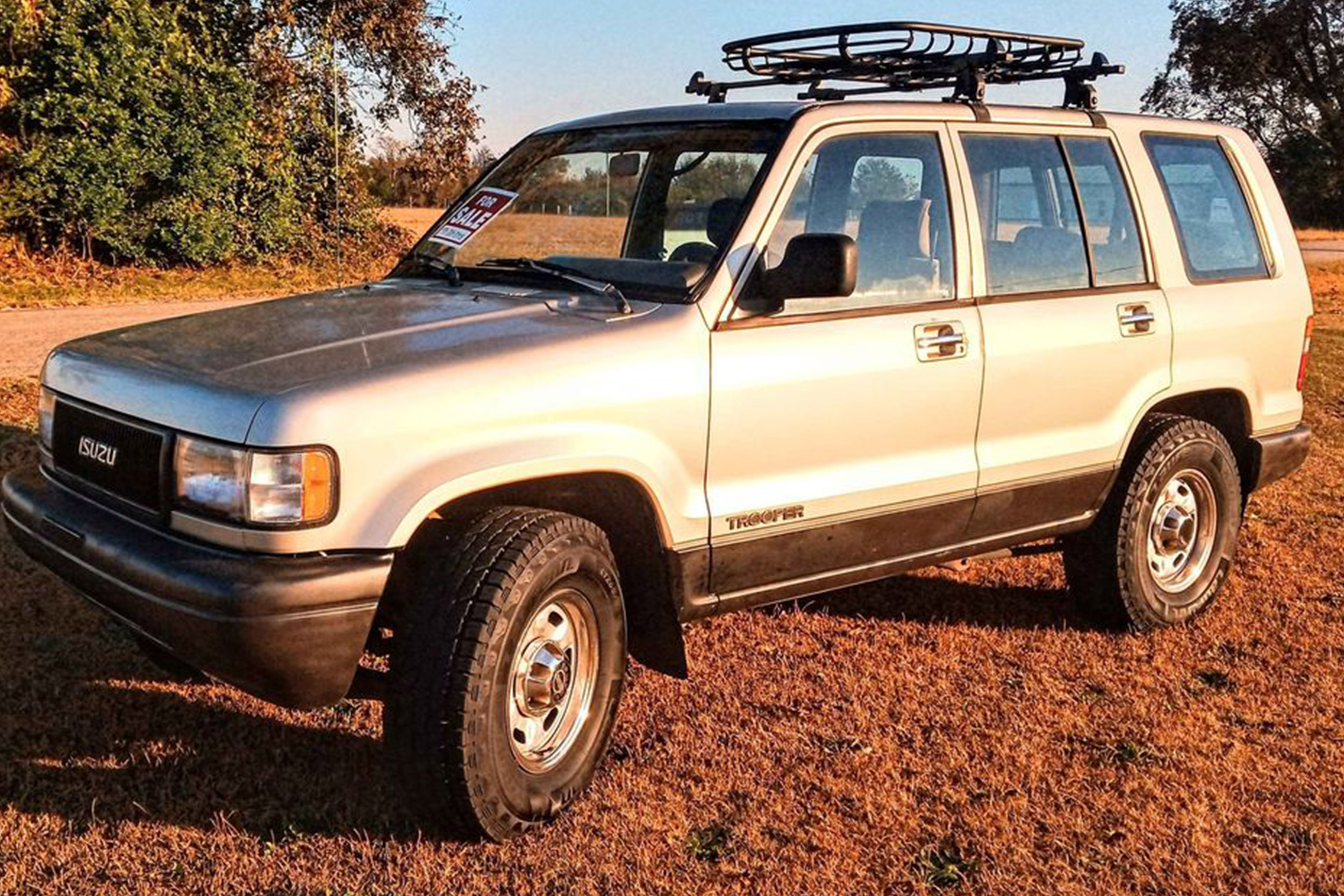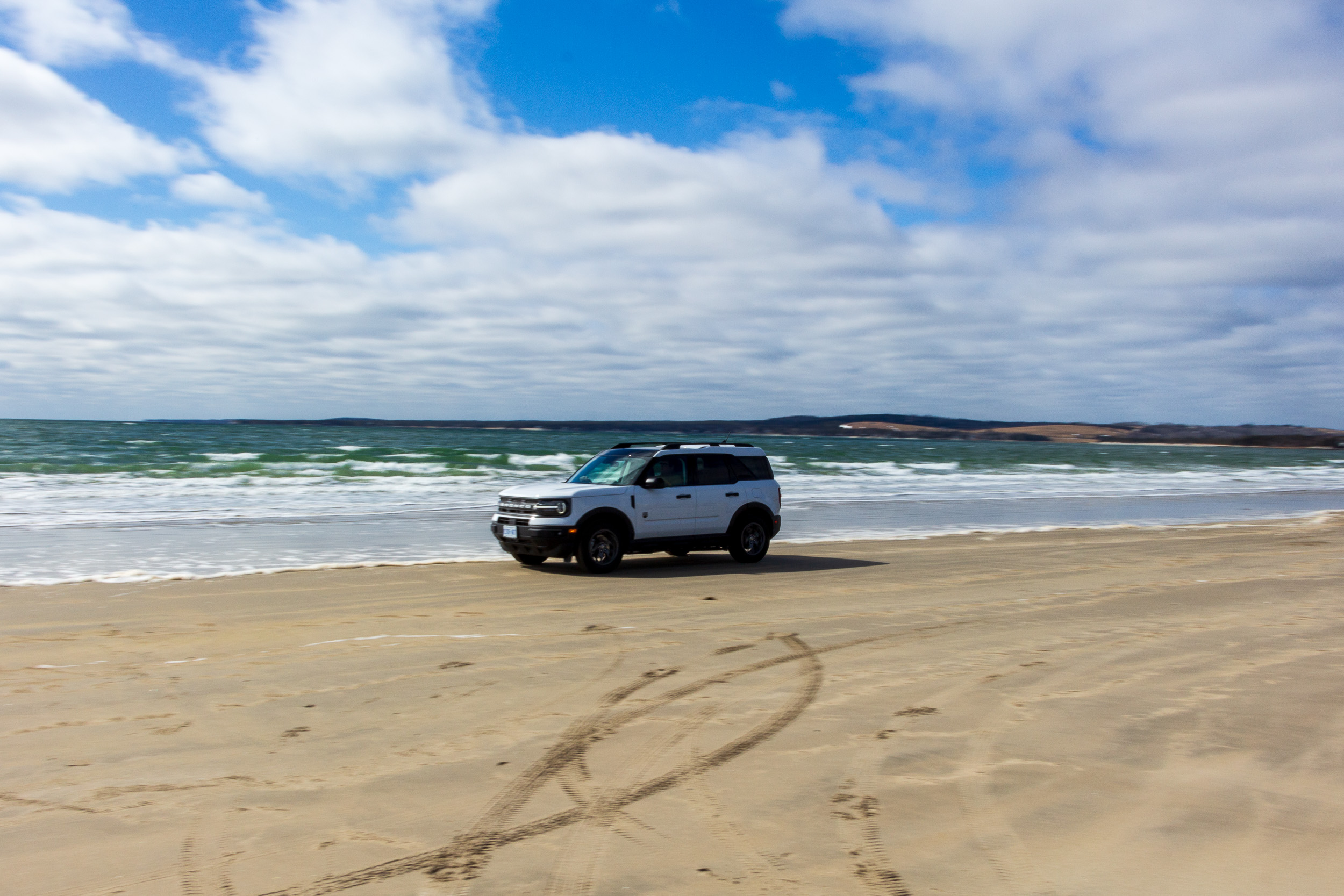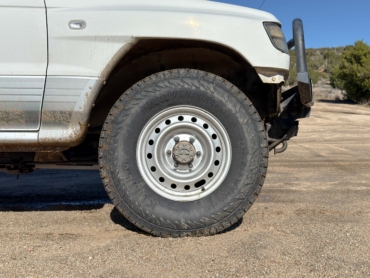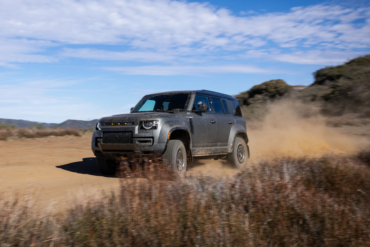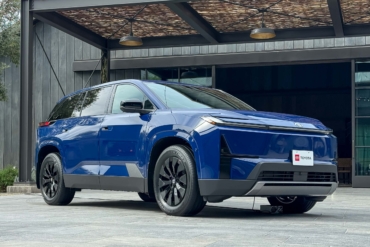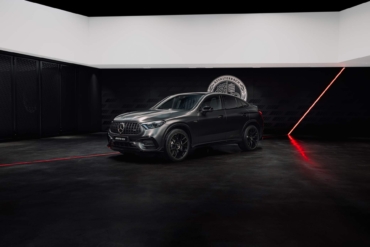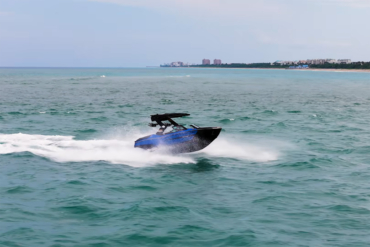There’s essentially no upper limit on what you could spend on an adventure vehicle. You could put down a solid down payment on a house for the price of a new Tacoma, and some van conversions are more expensive than purchasing a decent three-bedroom, two-bath abode.
But what about the folks who don’t need something capable of a 3-month Baja excursion? The people who want a dependable 4×4 for occasional national forest adventures and trips to Lowe’s, something to load down with firewood, load up with skis, and shuttle kiddos back and forth to karate practice.
Hello friends, I count myself among your number. I’m not a car guy and never have been. But recently, I found myself in possession of $5,000, the need for a vehicle, and a solid idea of what I wanted.
Adventure Vehicle Wishlist
My wishlist was as follows:
- The ability to tackle inclement conditions and bumpy forest roads without immediately breaking, getting stuck, or sliding into a ditch.
- Space for gear, pets, or the occasional stretched-out, sleeping human.
- A little character without necessitating constant maintenance (’cause I’d rather be in the woods).
- A price point that didn’t require the removal and sale of an internal organ.
But navigating the cesspool of Facebook Marketplace or Craiglist felt like an overwhelming task for someone whose knowledge of vehicles begins and ends with an admiration of his 2-year-old’s admittedly extensive and tractor-heavy car collection. I didn’t want to make a stupid decision.
Consulting an Expert
Enter Bryon Dorr, GearJunkie’s Motors Editor. A car expert by anyone’s metrics, Dorr helped me comb through the Mad-Max-style wasteland that is the cut-rate used car market for makes and models that could get me to a remote trailhead without costing the equivalent GDP of a medium-sized European country.
After putting our heads together, we came up with three solid options that met my needs and should meet yours as well. No 4Runners here, or Outbacks, or pickup trucks of any kind. No Land Cruisers or FJ Cruisers or Cherokees. All too expensive, too sought after, too collectible.
And, for the Geo Tracker and Suzuki Samurai fans in the house, I see you. Those are cool vehicles, but too small for loading up with much gear (or kids, or dogs, or …).
So, here are three underrated, large-ish, reliable, out-of-the-box, somewhat easy-to-find options that will serve you well while still leaving (a little) cash left over for groceries and rent in these increasingly expensive days. Happy hunting!
3 Adventure Vehicles Under $5,000
Mitsubishi Montero/Montero Sport
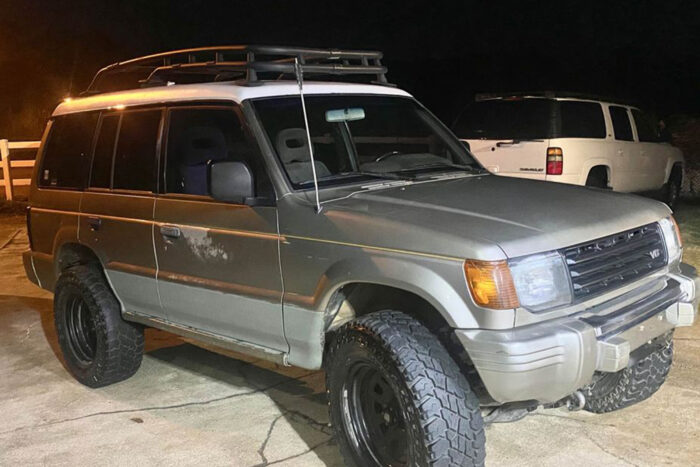
The Mitsubishi Montero was a contemporary of early Jeep Cherokees and the Bronco II (i.e., this vehicle first dropped in the early ’80s). Early-generation models had underpowered engines for the Montero’s size, but Mitsubishi gradually amped up the power until the third generation in the early oughts rocked a 3.8L V-6 with 215 horsepower.
The Montero has capable off-road specs but never drove like a modern SUV, even those final third-generation models. So if you’re looking for a gentle ride, look elsewhere.
The Montero is right on the edge of our stated price range of $5K (as classic SUVs are increasingly collector items, even the lesser-known ones). Still, you might be able to find one in a reasonable state of repair.
Look for a second-gen model (1992-2000) for a good blend of off-road chops and modern features, body-on-frame construction, a coil suspension in the rear and torsion bars in front, and four-wheel disc breaks. If you don’t speak 4×4, that just means that out of the options in this story, the Montero is the most capable of getting you to your destination over truly gnarly terrain.
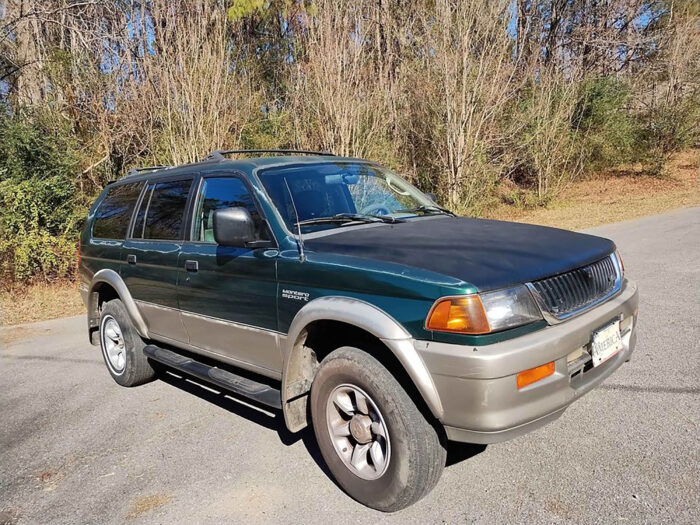
In the same family and also a great option is the Montero Sport. A more modern SUV — a little smaller, a little curvier, and more tooled for roads than trails. Still, it’s durable and rowdy, if not quite as classically truck-like as the Montero.
“I considered a cheap one for a big adventure before,” Bryon told me of the Montero Sport as we chatted over options.
The final tick in the Montero Sport’s “pro” box is its availability. Unlike the Montero, I found plenty of Montero Sports available in my price range, usually in decent shape, too.
Isuzu Trooper
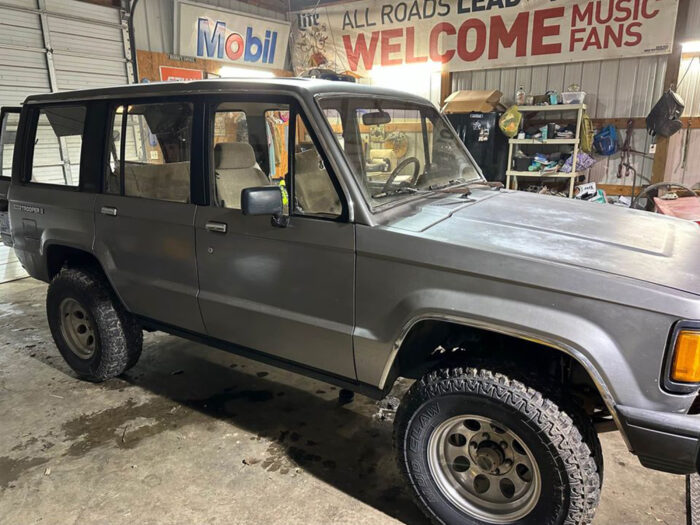
“Do you know anything about Isuzu Troopers?” I asked Bryon as my search continued. Facebook’s always-dicey algorithm had suggested them after I spent a few days looking at Monteros.
“Underpowered, durable, rust easily, and lots of interior room,” he answered.
That’s not necessarily a dream list of vehicle attributes if you’ve got cash to spare, but for those looking to purchase a vehicle without lighting their wallets on fire afterward, you could do a lot worse. “Durable” and “lots of interior room” stood out immediately, and I hopped on Marketplace to peep my options.
I found fun-looking Troopers from the late ’80s forward to the late ’90s that matched my price range, and most of them had fully functioning air conditioners and four-wheel drive — not things you can say about a lot of vehicles under $5K. They come with a full-size external spare tire and, true to Bryon’s answer, have a spacious, boxy interior.
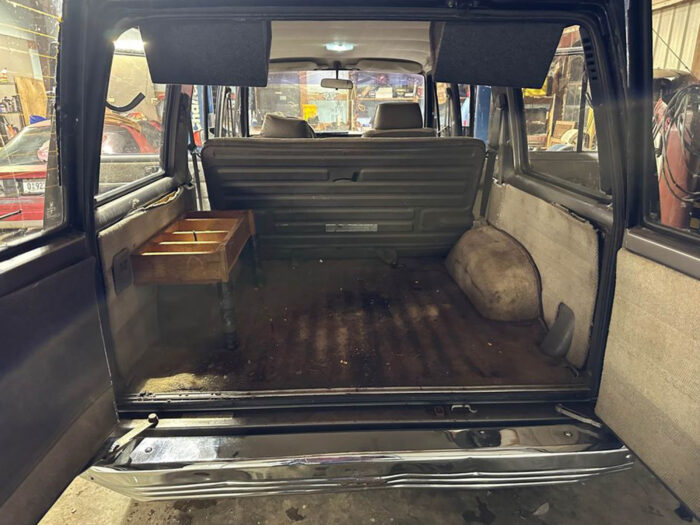
That boxyness gets less and less pronounced the further into the late ’90s you go. But Isuzu kept the side-opening rear hatch no matter how curvy the rest of the vehicle became.
Another benefit of the Trooper is that many V6, five-speed manual versions seem to be floating around. If you can drive a stick, you’ll have less competition when trying to outbid someone on Marketplace. And, while Troopers, particularly later models, aren’t the off-road machines that Monteros are, they will still get you down the old dusty with little to no issues.
Some downsides. While the first-gen trucks were the most no-nonsense and reliable, they were the ones that tended to be underpowered, and they are hard to find in any kind of decent condition. (Motor Trend says they tended to get beat up and used as farm vehicles.) Second-generation vehicles are a little softer looking and have more gadgets that can break. But they come with 3.2L or 3.5L V6 engines and are in better shape, generally speaking.
Honda & Toyota Minivans
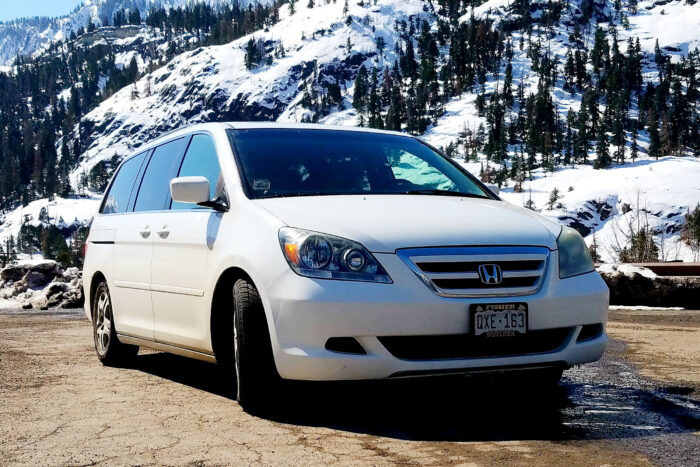
Minivans exist in a liminal space in the outdoor adventure world — not as trendy as full-size vans for conversions and without the clearance or off-road chops available in modern SUVs. But, let’s remember our stipulations — spaciousness, reliability, and the ability to tackle some basic forest roads. Like it or not, minivans fit the bill.
“I personally love minivans for their utility. Most also get okay fuel economy. Parts are plentiful and cheap. Most stuff isn’t too hard to fix on your own, besides some back-of-motor stuff that’s tight to the firewall,” Bryon told me. “Preferably Honda or Toyota for reliability.”
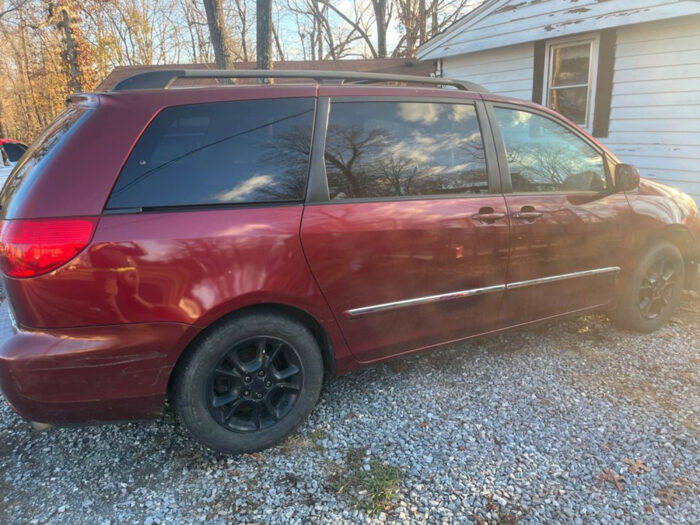
Sure enough, it took me all of 30 seconds to find a less-than-20-year-old Honda Odyssey in my area for $3,800 — and it even had heated seats. Same goes for Toyota Siennas. That brings us to a feature of minivans that Bryon didn’t mention — how ubiquitously available they are. Unlike the other vehicles in this story, a search for Toyota and Honda minivans in my price range gave me a ton of options to choose from.
As you might imagine, the wide availability of these vehicles also means upkeep and maintenance is going to be the least cost-prohibitive of anything else on this list. On the flip side, you won’t be tackling the Rubicon Trail in these bad boys.
But, as GearJunkie Motors News Lead Evan Williams recently wrote, almost any vehicle is more capable in the backcountry than you’d think it is. Rocking decent tires, driving cautiously, and having an escape plan (a friend in another vehicle and a tow strap) can get you a long, long way. Yes, even in a $3,500 2005 Honda minivan.
